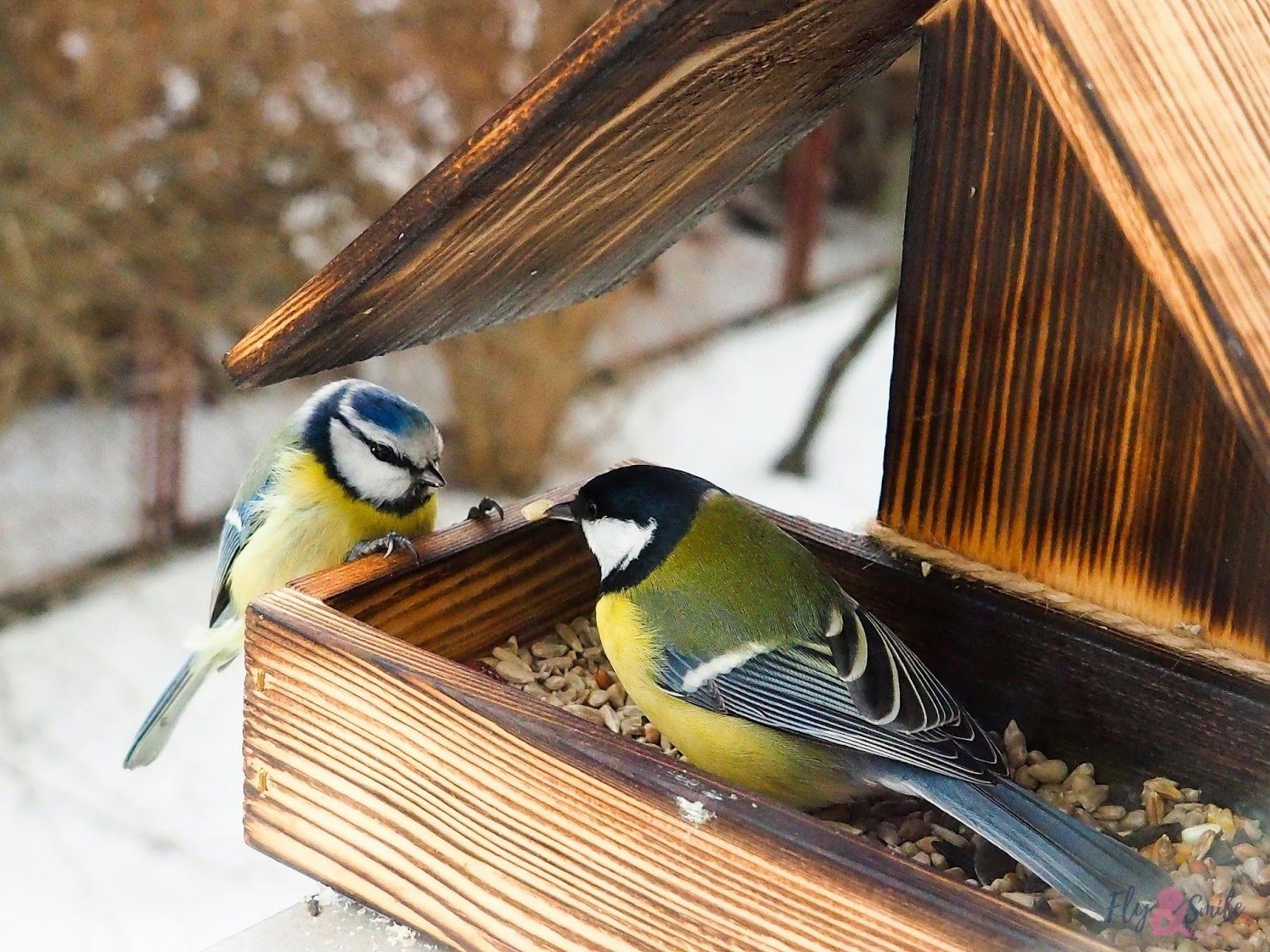Avian vocabulary
From "mother hen" to "pecking order": 10 idioms inspired by birds!
Published on May 2, 2025
 Credit: Sid Balachandran
Credit: Sid Balachandran
Humankind has a lot to thank birds for, from the chicken and eggs we gladly consume every day to their wonderful flights, which influenced the creation of the airplane. Not only that, but birds are truly unique creatures: Think of their bright colors and the complicated melodies found in their chirps, and you’ll see what we mean. In that sense, it seems only logical that these wonderful creatures have influenced the way we speak. With that in mind, here are 10 of the most popular phrases and idioms that reference our feathery friends. Enjoy!
Birds of the same feather
 Credit: Patrice Bouchard
Credit: Patrice Bouchard
The phrase "birds of the same feather" is commonly used to describe how similar or like-minded people tend to connect and form groups. Interestingly, it seems that this idiom is actually an abbreviation of a longer and older English proverb, which states, "Birds of a feather flock together." This phrase was prominently used in literary classics such as Leo Tolstoy’s War and Peace and James Joyce’s Ulysses.
Fly the coop
 Credit: Tom Ungerer
Credit: Tom Ungerer
Chickens tend not to be the most secretive of birds; they are famously flightless and are not exactly known for their dexterity or stealth. Regardless, they are known to escape from time to time, which is where the idiom "to fly the coop" comes from. It is used whenever someone escapes or goes away. Notably, it is also used by broken-hearted parents whenever their children leave home.
Mother hen
 Credit: Bri Tucker
Credit: Bri Tucker
Speaking of chickens, the phrase "mother hen" is used to describe someone with a particularly strong and protective maternal instinct. As you probably guessed, this phrase comes from the way hens hatch and nurse their chicks, keeping them close for several weeks until they are able to wander off on their own. While this idiom is sometimes seen in a negative light, at the end of the day, a "mother hen" is someone with a lot of love to give. So, we’d like to take a second to salute all the mother hens out there.
Pecking order
 Credit: Lidia Stawinska
Credit: Lidia Stawinska
Most of us deal with one or two "pecking orders" in our lives: Think back to that boss you simply can’t talk back to, or the respect you were expected to have for your headmaster at school. This social hierarchy comes from birds that tend to live in hierarchical structures, where their social standing is determined by who they can peck without fear of retaliation (and who may peck them back).
Night owl
 Credit: Odd Sun
Credit: Odd Sun
Many of us are night owls, and there’s nothing wrong with that. Maybe you find solace in the darkness of night, and it is during this time that you do your best work or can concentrate and study harder. As the name suggests, this idiom comes from owls, perhaps the quintessential nocturnal bird. Most owls hunt at night and sleep during the day, although some species can be crepuscular or even diurnal.
As free as a bird
 Credit: Gauravdeep Singh Bansal
Credit: Gauravdeep Singh Bansal
Who hasn’t looked up at the clear skies and seen a flock of birds pass by without a worry in their minds? If you’re like us, you were probably a tad envious of those birds’ freedom. Coincidentally, that feeling perfectly describes the idiom "as free as a bird." The image is rather self-explanatory: Birds tend to fly wherever they want, with nothing to stop them as they traverse the skies above.
Feather in your cap
 Credit: David Trinks
Credit: David Trinks
Who would have known that sporting a feather in your hat was once considered a fashion statement? The phrase "a feather in your cap" is used to describe an achievement and the feeling of accomplishment that comes with it. Putting the titular feather in your cap means celebrating this success. While the origin of the phrase is unclear, some believe it is an old tradition associated with hunting, where a hunter would place a freshly plucked feather in their cap as a trophy after a successful hunt.
Spread your wings
 Credit: Mathew Schwartz
Credit: Mathew Schwartz
Whenever a friend or relative encourages you to "spread your wings," they are suggesting that you experiment with new things and confidently gain more experience in life. When you think about it, it’s rather funny that we find encouragement to try new things in something that birds do every day: After all, they spread their wings whenever they need to fly, right? In any case, the image invoked by this idiom is still a powerful one and remains one of the best ways to inspire someone to do great things.
Early bird catches the worm
 Credit: Jean Giroux
Credit: Jean Giroux
On one hand, the meaning of this idiom is quite literal: When you tell someone that "the early bird catches the worm," you might be suggesting that they need to get up earlier. However, this idiom can also convey the importance of being first, acting quickly to make the most of opportunities. Interestingly, this idiom seems to be at odds with another popular proverb, which states, "Good things come to those who wait." At the end of the day, both ideologies are valid, so choose whichever works best for you!
A little birdie told me
 Credit: Chris Smith
Credit: Chris Smith
We’ll end with an idiom that made many small children loathe small birds. Whenever you did something you weren’t supposed to, did your parents confront you by saying that "a little birdie" told them you misbehaved? Nowadays, this phrase is used to refer to a piece of information heard through someone else, such as a friend or coworker who wishes to remain anonymous.












